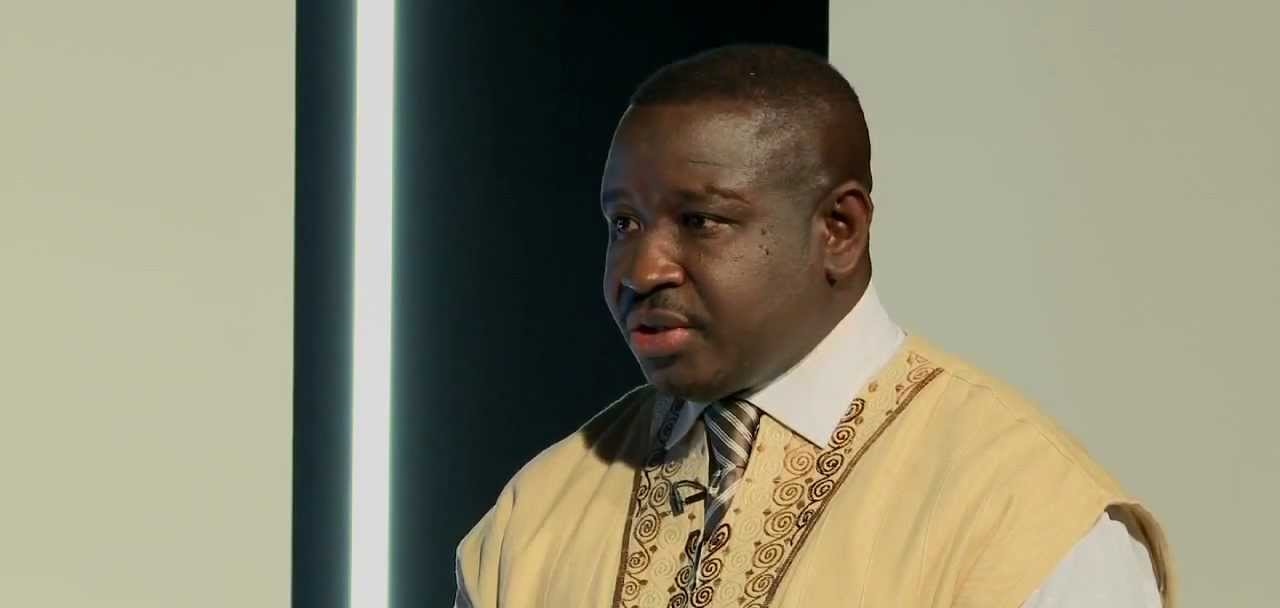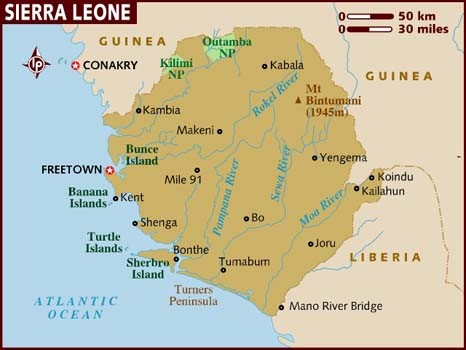Sierra Leone towards democracy
April 6, 2018 | Expert Insights

Sierra Leone has sworn in a new President, former junta leader Julius Maada Bio from the Sierra Leone People’s Party (SLPP). Bio is the first President who is not from the dominant All People’s Congress (APC) since the end of the civil war in 2002. This will be the first time in the country’s history that the ruling party does not hold an absolute majority in parliament.
Background
Sierra Leone is a country in West Africa, bordered by the Atlantic in the west, Guinea in the north and east, and Liberia in the south. The country was first inhabited by the Bulom people around 1400 AD. Soon after, Krim, Gola, Mende, Fulani, and Temne ethnic groups arrived in the region. The country’s present name was coined by a 15th century Portuguese explorer, Pedro de Sintra, who named it Serra Lyoa or “Lion Mountains”, after the hills surrounding the harbour.
Through the late 1700s and early 1800s, freed slaves from England, Nova Scotia, and Jamaica, made the country their home. The capital Freetown (then called the “Province of Freedom”) was established in 1787, and became a British colony in 1808. Sierra Leone gained independence from the British Empire in 1961.
Since independence, the country has seen multiple coups. Through much of the 70s and 80s, Sierra Leone was a one party state, dominated by the APC (All People’s Congress). The country made strides towards a return to multiparty democracy in the early 90s. However, in 1991, former army corporal Foday Sankoh and his Revolutionary United Front (RUF) began a campaign against the Sierra Leonean government, sparking a highly destructive civil war.
Through the 1990s, the country underwent a series of coups and continued strife, fuelled by the country’s mineral wealth and “blood diamonds”. UN peacekeeping missions began in 1999, and British troops were sent to Freetown in 2000. The civil war ended in 2002. The APC has been in power since the end of the war, and governments have adhered to democratic processes.
Today, Sierra Leone has a population of over 6 million, of which over 78% is Muslim. Temne and Mende are the dominant ethnic groups. Approximately half the population works in subsistence agriculture. Rates of infant and maternal mortality are high, due to poor nutrition, sanitation, and healthcare, lack of potable water, and widespread poverty.

Analysis
Opposition candidate Julius Maada Bio of the Sierra Leone People’s Party (SLPP) has won Sierra Leone’s Presidential elections. Bio won the second round of elections with a 51.8% majority. Foreign Minister Samura Kamara of the incumbent All People’s Congress (APC) was runner up, with 48.18% of the vote. 81% of the 3.1 million registered voters took part in the polls.
Outgoing President Ernest Komora, who stepped down after serving the constitutional limit of two terms, had chosen Kamara as his successor. Kamara has claimed that the polls were rigged, citing “concerns about massive ballot box stuffing, supernumerary votes, and other irregularities.”
Bio is a former member of the junta. In 1992, Bio followed Valentine Strasser in a coup to overthrow the state. He later overthrew Strasser in 1996, and acted as President for a brief period. After three months in power, Bio handed the country over to a newly elected civilian government. Bio has accepted “collective responsibility” for the alleged human rights abuses that took place during this time.
Observers have noted that Bio’s victory may be a reaction to Komora’s rule, which was criticised for widespread corruption and cronyism. Besides tackling corruption, the new President will have to manage the country’s economy, which is still recovering from the civil war and the 2014 and 2015 Ebola outbreaks. According to some estimates, unemployment is at 70%. A global slump in iron prices, the country’s main export, could hit Sierra Leone hard. Ethnic tensions are also high in the region. Bio is part of the Mende ethnic group, while the APC is supported by a large proportion of Temnes.
“There are certain institutional restraints that are not just going to let me do things the way I want to do them,” Bio acknowledged. “This is not a military government and I do acknowledge that, and accept the limitations.” Bio has promised to reduce Sierra Leone’s dependence on natural resources, and invest in “human capital”, particularly through education. Bio has also called the widespread Chinese infrastructure projects in the country “a sham with no economic and development benefits to the people.” China is Sierra Leone’s largest trading partner.
Observers have stated that these elections are a positive sign. “The fact that more than 80% of eligible voters took to the polls in the run- off is a strong indication of the confidence that Sierra Leoneans had in the electoral process,” said EU ambassador to Sierra Leone Tom Vens. While there were some instances of violence, the elections were not bloody. Alex Vines, head of the Africa programme at Chatham House called it a “significant” and “unexpected” result.
Assessment
Our assessment is that these elections mark Sierra Leone’s continued transition from guns to the ballot box. The country’s primary challenge lies in boosting the economy while ensuring equitable growth. We believe that it will be interesting to observe how Bio’s stance on China affects Beijing’s infrastructure projects in the country, including the $318 million Mamamah airport. While the victory of an opposition candidate is indication of a healthy, multiparty democracy, is Bio the right man for the job?








Comments